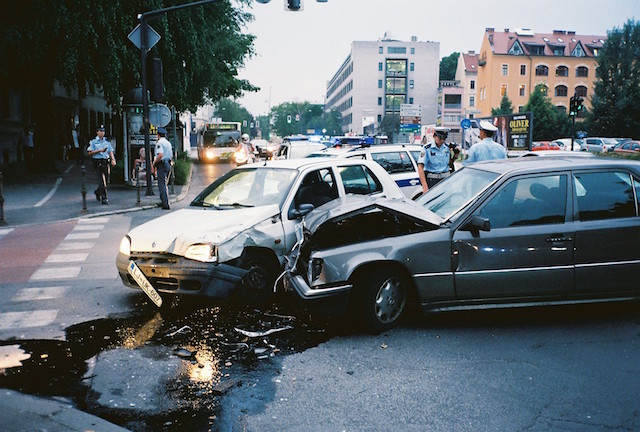When we see an accident or hear a terrible thing happened, why do we feel this ticklish need to check it out?
We stop on the side of the road to look at a dramatic accident, not in the hope of being helpful, as the emergency team is already on site, but just to look.
We peek at an accident to see how bad it is, how many bodies are lying on the ground—the same way we like to get the juicy details of terror attacks or murders.
I’ve had my share of dramatic moments in the past years, and I now carefully browse through the news section trying to limit unnecessary exposure to other people’s pain and trauma.
The fact that someone got shot with five bullets instead of four isn’t something I want to know. If they died on the scene rather than in the ambulance isn’t something I need to know. The number of liters of blood that ran through the sewers before they took their last breath isn’t a detail I desire.
I’m not saying we shouldn’t feel compassion for those injured in terrible tragedies. In fact, we should.
But traumatic situations tap into our curiosity to the point where being invested in those sordid details is a little unhealthy.
The truth is, we like drama. Drama sells. But on the other hand, we complain that there’s too much drama in the world.
Still, we like dramatic movies. We often like the most despicable contestants in reality TV shows and even manage to elect some of those personas in politics. And it’s not because we identify with them or even because we’re sympathetic.
So, what draws us to check out accidents or crime scenes and follow the digital lives of dramatic characters?
Why do we inflict ourselves with unpleasant, disturbing elements when our lives are already pretty full of their own drama?
As far as the TV and movie aspect goes, we like to follow those characters because they go beyond where we allow ourselves to go emotionally and physically.
The same goes with rubbernecking at a traumatic scene. It’s certainly not that we’re envious, but we’re curious and excited because we’re so close to some pretty intense feelings.
We experience something bigger and fiercer than we’re normally capable of feeling.
It doesn’t matter if it make us feel better or worse. What’s important is it makes us feel.
We have this need to dig into what real fear and pain feel like. But let’s be honest—even with all the drama we like to watch, we secretly hope it never happens to us.
Like addicts, we have a love/hate relationship with drama.
We live in a time when everything is safer and easier. We don’t have to struggle to feed ourselves, fight for our lives or walk endless miles for water and shelter.
We don’t even really need to feel, and ultimately, we don’t want to. Feeling is hard; feeling is painful.
Watching heavy feelings in others allows us to borrow a bit of that human nature. We touch death for a second, or we feel frightened by cruelty for an instant until we go back to our own lives.
We’re missing excitement. We long for deep meaningful experiences, but being emotionally raw is hard. In fact, raw situations in our lives are scary and we try to avoid them. Yet we’re still drawn to steal them as spectators from others’ lives.
But we have a choice. We can stop looking for drama and start experiencing the richness in our own lives and our own happiness by going beyond our comfort zones.
There are many extraordinary experiences available which could flow through our lives every day. If we focus on our own experiences, as opposed to living passively and vicariously through others, we’ll find plenty to satisfy our need for powerful and meaningful moments.
So let’s not wait for the next terror attack to start experiencing life!
~
Author: Maïlis Bietenhader
Image: Wikimedia
Apprentice Editor: Alice Lundy / Editor: Callie Rushton







Read 0 comments and reply